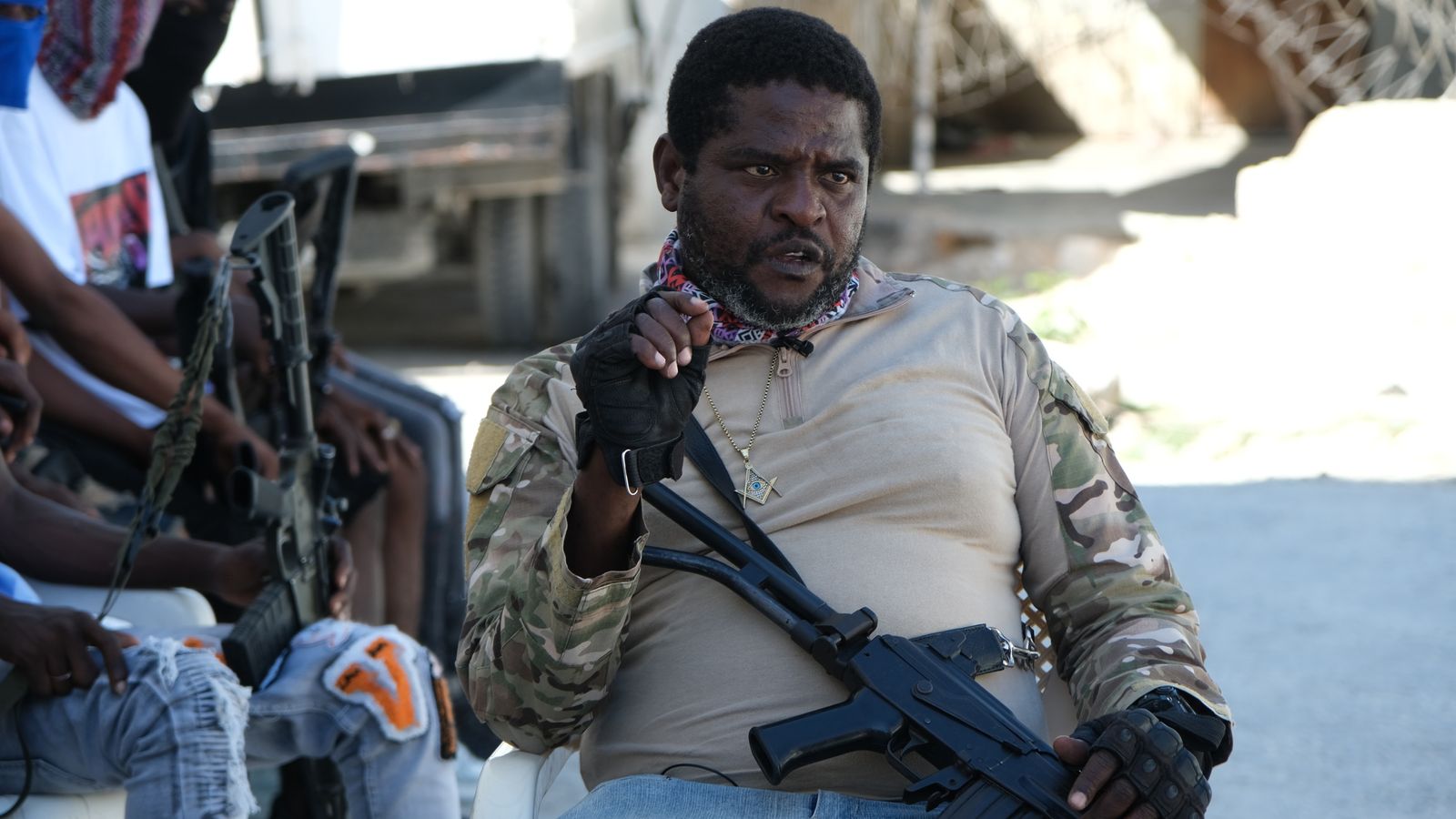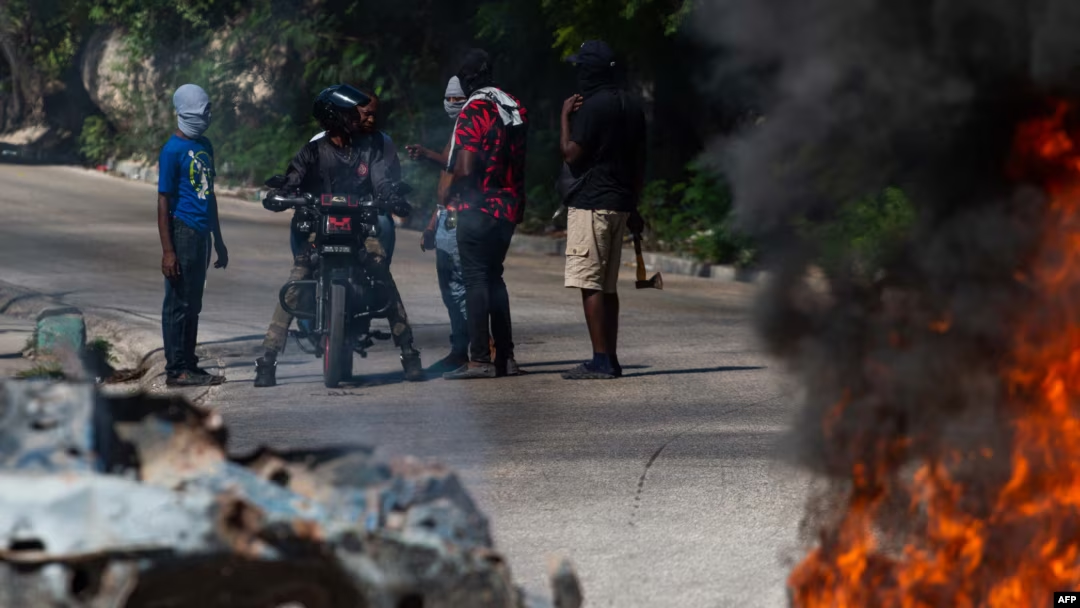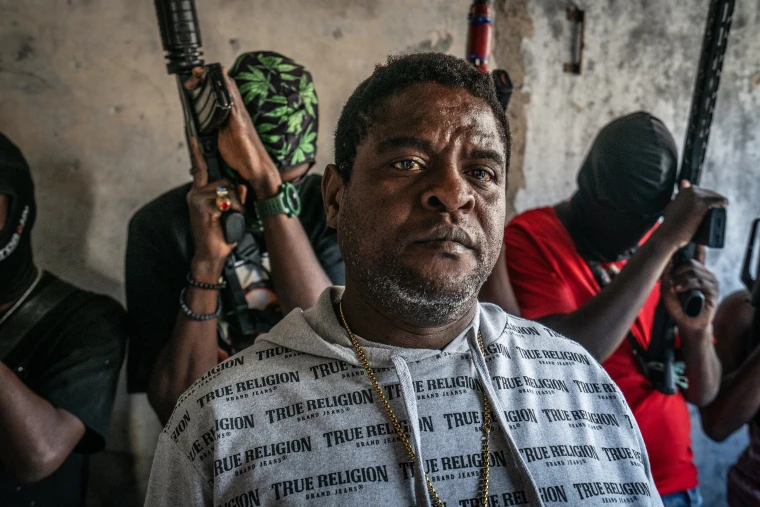The deteriorating security situation in Haiti has reached a critical juncture, with authorities issuing an ultimatum to one of the country’s most notorious gang leaders, Jimmy “Barbecue” Chérizier. In a bold and highly publicized warning, Haitian security forces have demanded that Chérizier surrender immediately or face decisive action. This development underscores the escalating efforts to restore order in a nation plagued by gang violence, political instability, and humanitarian crises.
The Rise of Jimmy “Barbecue” Chérizier
Chérizier, a former police officer, emerged as a key figure in Haiti’s criminal underworld. He leads the “G9 Family and Allies,” a coalition of gangs that has been accused of numerous atrocities, including kidnappings, extortion, and murders. His alias, “Barbecue,” reportedly stems from his background as a cook or, more ominously, his alleged role in arson attacks.
Over the years, Chérizier has transitioned from a shadowy figure to a powerful gang leader, openly challenging the Haitian government and law enforcement. He portrays himself as a revolutionary, often framing his actions as resistance against systemic inequality and corruption. However, human rights organizations and Haitian citizens see him as a primary destabilizing force in the country.
Haiti’s Descent into Chaos
Haiti has been grappling with a multifaceted crisis marked by political turmoil, economic decline, and widespread gang violence. Following the assassination of President Jovenel Moïse in 2021, the nation descended further into lawlessness. Gangs now control large portions of Port-au-Prince, the capital, and other key areas, effectively turning parts of the country into no-go zones.
This lawlessness has had severe consequences:
- Humanitarian Impact: Over 200,000 people have been displaced due to gang violence. Access to food, water, and healthcare has become increasingly scarce.
- Economic Decline: Businesses and trade routes have been paralyzed, worsening Haiti’s economic woes.
- Increased Kidnappings: Abductions for ransom have become rampant, targeting everyone from local residents to international aid workers.
Chérizier and the G9 alliance have been at the center of much of this chaos, using fear and violence to consolidate power.
The Government’s Response
Amid mounting pressure from both domestic and international stakeholders, Haiti’s interim government has vowed to take decisive action against gang leaders like Chérizier. In recent weeks, security forces have intensified operations, supported by international aid and expertise.
The ultimatum delivered to Chérizier marks a significant escalation in this campaign. Speaking to the media, a senior official of Haiti’s security team declared:
“We have given Chérizier a clear choice: surrender now, or we will come for you. The time for negotiations is over.”
This warning reflects the government’s determination to reassert control, though the path forward is fraught with challenges.
Challenges in Capturing Chérizier
While the ultimatum signals a strong stance, capturing or neutralizing Chérizier presents a monumental challenge:
- Gang Stronghold: The G9 coalition wields significant control over key areas in Port-au-Prince, including fortified slums where law enforcement faces extreme risks.
- Community Support: Despite his violent reputation, Chérizier has cultivated a level of support among marginalized communities by distributing food and portraying himself as a defender of the poor.
- Resource Limitations: Haiti’s security forces are underfunded and lack advanced training and equipment, making large-scale operations difficult.
- International Scrutiny: Any action against Chérizier must balance the need for justice with concerns over potential civilian casualties and human rights violations.
International Involvement
The international community has played a critical role in Haiti’s efforts to combat gang violence. The United Nations, the United States, and regional organizations like CARICOM have provided financial aid, training, and diplomatic support.
Recently, a Kenyan-led multinational security force was approved to assist Haiti in restoring order. This force, expected to deploy in early 2024, aims to bolster local security capabilities and reclaim gang-controlled areas. However, critics argue that international interventions in Haiti often fail to address underlying socio-economic issues, risking long-term instability.
Barbecue’s Response
Chérizier has not remained silent in the face of the ultimatum. In a defiant video posted on social media, he dismissed the government’s warnings as “empty threats” and vowed to continue his struggle.
“They think they can scare me with their words. But we are here, standing strong. They cannot defeat the people’s revolution,” he declared.
This response underscores the difficulty of negotiating with or intimidating figures like Chérizier, whose power is deeply entrenched in Haiti’s fractured society.
Impact on Haitian Citizens
For ordinary Haitians, the showdown between security forces and Chérizier is yet another chapter in a long saga of suffering. Residents of gang-controlled areas live in constant fear, often caught in the crossfire between rival factions and law enforcement.
Many are skeptical of the government’s ability to bring lasting change. A Port-au-Prince resident, speaking anonymously, said:
“We have heard these promises before. They come, they fight, and then they leave. The gangs return stronger than ever. We need real solutions, not just words.”
Potential Scenarios
The ultimatum to Chérizier could play out in several ways:
- Surrender: If Chérizier decides to surrender, it would mark a significant victory for the government. However, this outcome seems unlikely given his track record of defiance.
- Military Action: A direct assault on Chérizier’s stronghold could lead to his capture or death but risks significant collateral damage.
- Prolonged Standoff: Chérizier could evade capture, leading to a prolonged and costly conflict.
Each scenario carries risks and potential repercussions for Haiti’s stability.
The Need for Long-Term Solutions
While addressing gang violence is a critical step, Haiti’s challenges require a more comprehensive approach. Poverty, unemployment, and weak governance create fertile ground for figures like Chérizier to rise.
To achieve lasting peace, Haiti must:
- Invest in Development: Addressing economic disparities and creating opportunities for youth can weaken the appeal of gangs.
- Strengthen Institutions: Building a robust justice system and combating corruption are essential for restoring public trust.
- Enhance Education: Access to quality education can empower future generations and reduce the lure of criminal activity.
- Foster International Partnerships: Haiti must work closely with global allies to secure aid and expertise while ensuring that interventions respect its sovereignty.
Conclusion
The ultimatum to Jimmy “Barbecue” Chérizier represents a pivotal moment in Haiti’s fight against gang violence. While the warning underscores the government’s resolve, the road ahead is fraught with challenges.
Haitians yearn for peace and stability, but achieving these goals requires more than just targeting individual gang leaders. It demands a holistic approach that addresses the root causes of the nation’s crises, ensuring a brighter future for all. As the deadline looms, the world watches Haiti’s struggle with a mix of hope and concern. Will this be the turning point, or just another chapter in its tumultuous history? Only time will tell.




